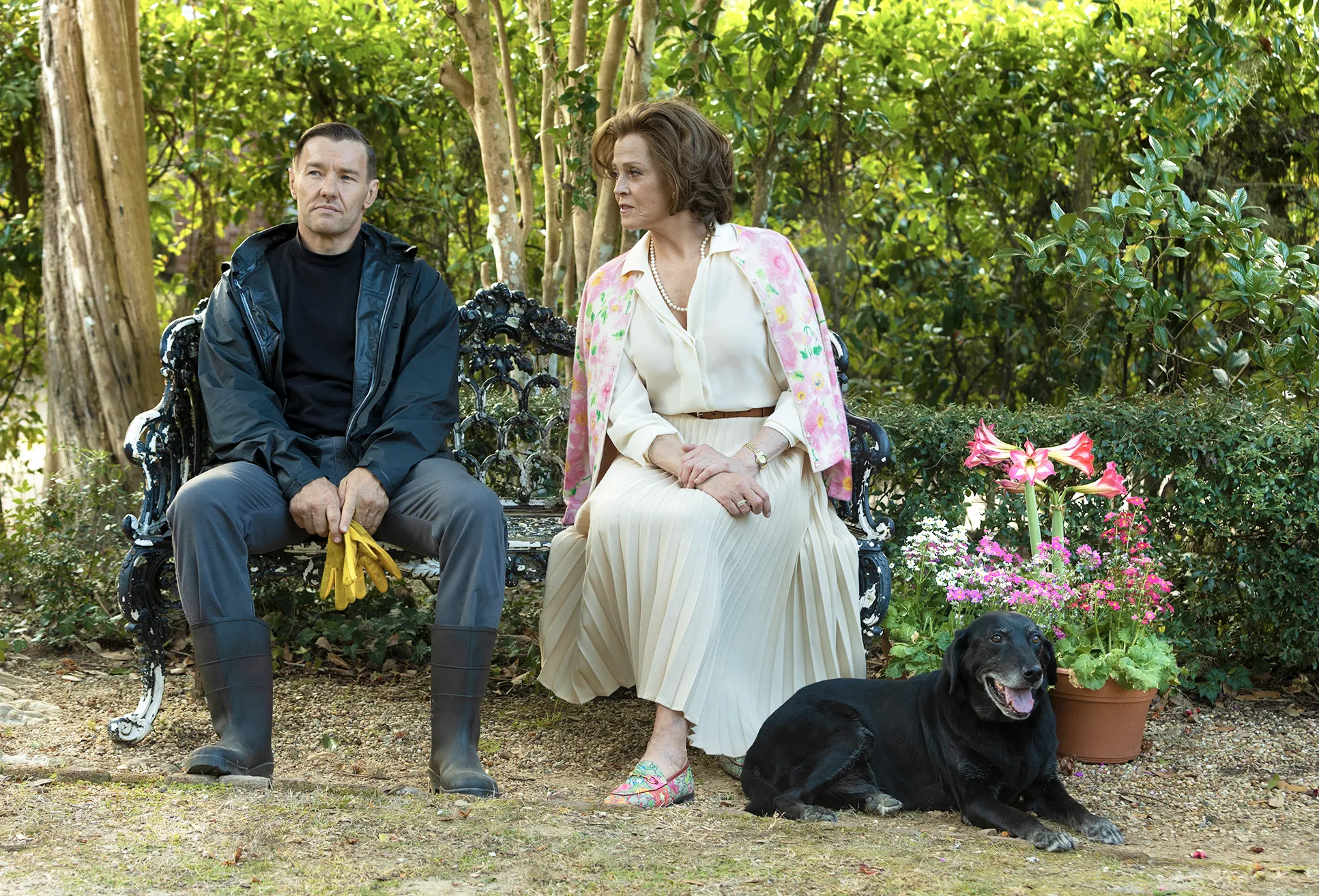
“…Once you get that action, and, then after that, silence.”
——Paul Schrader, Interview at Toronto International Film Festival 2017
The screen light dims. The ceiling light brightens. One hour and forty-seven minutes of silence, mixed with occasional laughter, in the audience seats were finally broken. Sustained yet unsure, waves of ovation erupted inside the monumental Alice Tully Hall, the echo of which concludes the North American premiere of Master Gardener, the new crime-thriller written and directed by none other than Paul Schrader himself. From his recent works, I expected the film to be a period to and perfection of the formula established by First Reformed and The Card Counter, a formula that grafts together the veteran auteur’s most acclaimed cinematic and theoretical accomplishments, which, more or less, can be abbreviated into a short paragraph:
—Presented in an audio-visual language inherited from Bresson, Ozu, and Dreyer, the new Schraderian trilogy is a critique of America and an evaluation of masculinity. The narrative depicts the voluntary self-exile of a diary-narrating man haunted by his past; when a certain encounter intrudes on his carefully-maintained status quo, the protagonist is thrust into a complex and dangerous situation, eventually leading to a climatic redemption that takes the form of a disturbingly violent act, concluding the film in emotional uncertainty.
Aesthetically, it isn’t too hard to notice Master Gardener’s departure from its two siblings. The emotionally incarcerating 1.33:1 aspect ratio was gone, alongside the subdued analogous palette; instead, the film was displayed in a much wider 2.39:1 and significantly more saturation. Setting-wise, the candy-colored Gracewood Garden stands almost as an antithesis to the bleakness of desolate churches and haunting casino hotels. Unfortunately, this departure isn’t exactly benign, as the renovation damages more than it contributes to the withholding of action, characterized by Schrader as one of the most fundamental principles in Transcendental cinema.
Take my demand for tone and obsession with comparison with a spoonful of salt, though. After all, Master Gardener’s stylistic renovation, however imperfect, marks Schrader’s first step outside of his imitation game.
Nevertheless, the anticlimactic narrative pacing poses a way larger problem. Circulating around the three inhabitants of the colonial revival Gracewood Garden in Louisiana, the first act delivers a premise almost too tranquil: Narvel Roth (Joel Edgerton), the head horticulturist; Norma Haverhill (Sigourney Weaver), the wealthy owner; and Maya (Quintessa Swindell), Norma’s troubled, estranged biracial niece who just arrived as an apprentice. Of course, one awaits, anxiously, the reveal of what’s beneath, a la the explosive one-take scene of Abu Ghraib in Card Counter.
The truth arrives when, after a few brief flashbacks, Narvel takes off his unassuming sweaters and overalls, revealing a body tattered black with neo-Nazi hate tattoos from White Pride in gothic fonts to scarlet Schutzstaffel lighting bolts: he was once a hitman for a white supremacist gang before escaping into witness protection. Yet, instead of building upon easily the most grasping moment in the film, the twenty minutes that follow turn to Maya and Norma’s Downton Abbey-esque drama, evaporating all the suspense that was just built up. By the time Narvel’s past comes into the spotlight once again, the limp in energy is already unrecoverable.
The rest of the film continues to wobble in a similar trance of low energy. By the time the climax arrives, nothing has been left unresolved; all stakes and uncertainties have disintegrated: there is no chance of a suicide bombing to keep me on the edge of my seat, nor are there high-stake gambling games and a possible homicide to invest my emotion in. The film never succeeded in keeping my engagement afloat.
On a brighter note, the film continues Schrader’s insightfulness in its exploration of American social issues: using Gracewood Garden, a clear symbol for plantations, as the textual framework, Master Gardener addresses racial tension in a subtle and allegorical manner – Relying on the contributions of minorities yet owned by old money, Conservative America maintains its covert intimacy to extremism and inherent suppression of minorities with discrimination and gentrification.
Before I left the theater, I looked up and was surprised to see Paul standing on one of the balconies, looking at the rolling credit. His nude scalp shined like a bulb under the glow; nevertheless, I was somewhat certain that under all the excitement produced by the ovation, there was a cast of faint dissatisfaction. If such observation wasn’t merely a projection or reflection of my own subconscious opinion, then it might be an answer to my mild disappointment with the film: compared to its two predecessors, Master Gardener only aims to complete Schrader’s ambition for a thematic trilogy, as opposed to an autonomous film independent from stylistic influences – perhaps, this inherent misdirection was the seed that grew into a viewing experience devoid of profound impact.